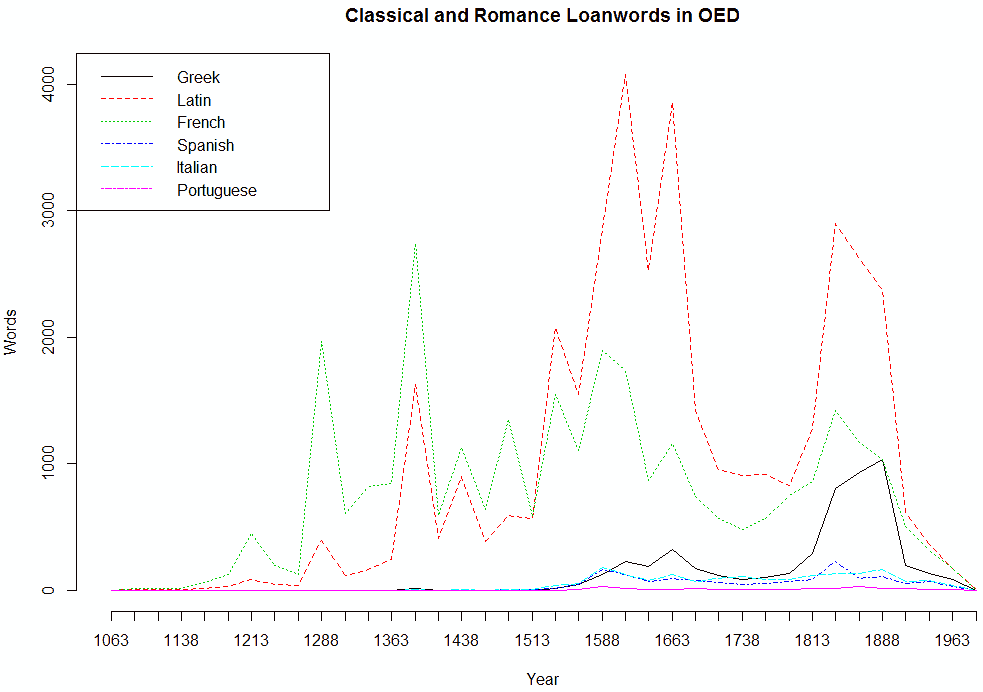5. 依存症の深まり (2) — 語彙拡充

堀田 隆一(慶應義塾大学)
2022年1月22日
hellog~英語史ブログ: http://user.keio.ac.jp/~rhotta
英語史上,初期近代英語期(1500-1700年)は語彙増加が最も著しかった時代である.ルネサンス期の爆発的な知識拡大に伴い,豊かな語彙が必要とされたからである.同時期のドイツ語では自前要素の活用という方針が採られ,明治期の日本語では漢語による造語の方針が採られたのに対して,英語の場合には,古典語であるラテン語やギリシア語の語形をそのまま取り込むという方針が採られた.この「節操のない」借用方針に対して世間からの批判などもあったが,結果としてみれば多くの古典語単語が英語の語彙に定着するに至った.英語は,古典語へのコンプレックスと語彙不足という2つの問題を,古典語彙を自身に同化させることにより克服しようと試み,ある程度成功したのである.
* 本スライドは https://bit.ly/3IjXZbE よりアクセスできます.スライド中の “#3371” のようなリンクは,堀田の hellog~英語史ブログ の記事番号です.
→皮肉なことに,いずれの悩みもラテン語に依存することで解消されることに・・・
| 自言語の形式 | 他言語の形式 | |
|---|---|---|
| 自言語の意味 |
|
|
| 他言語の意味 |
|
|
参考: